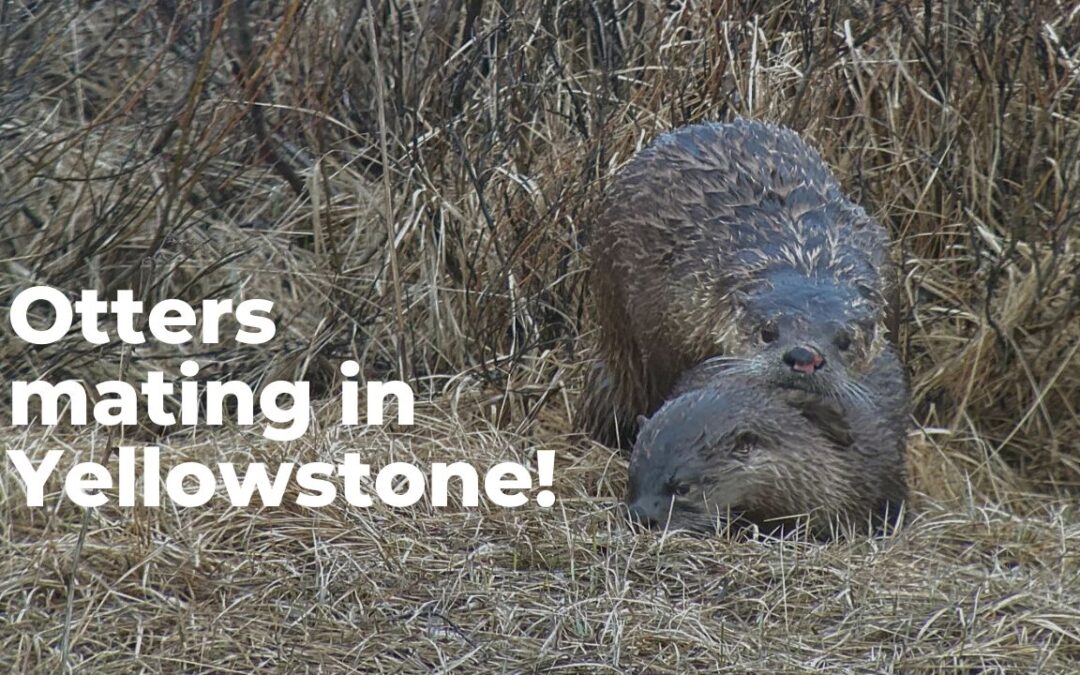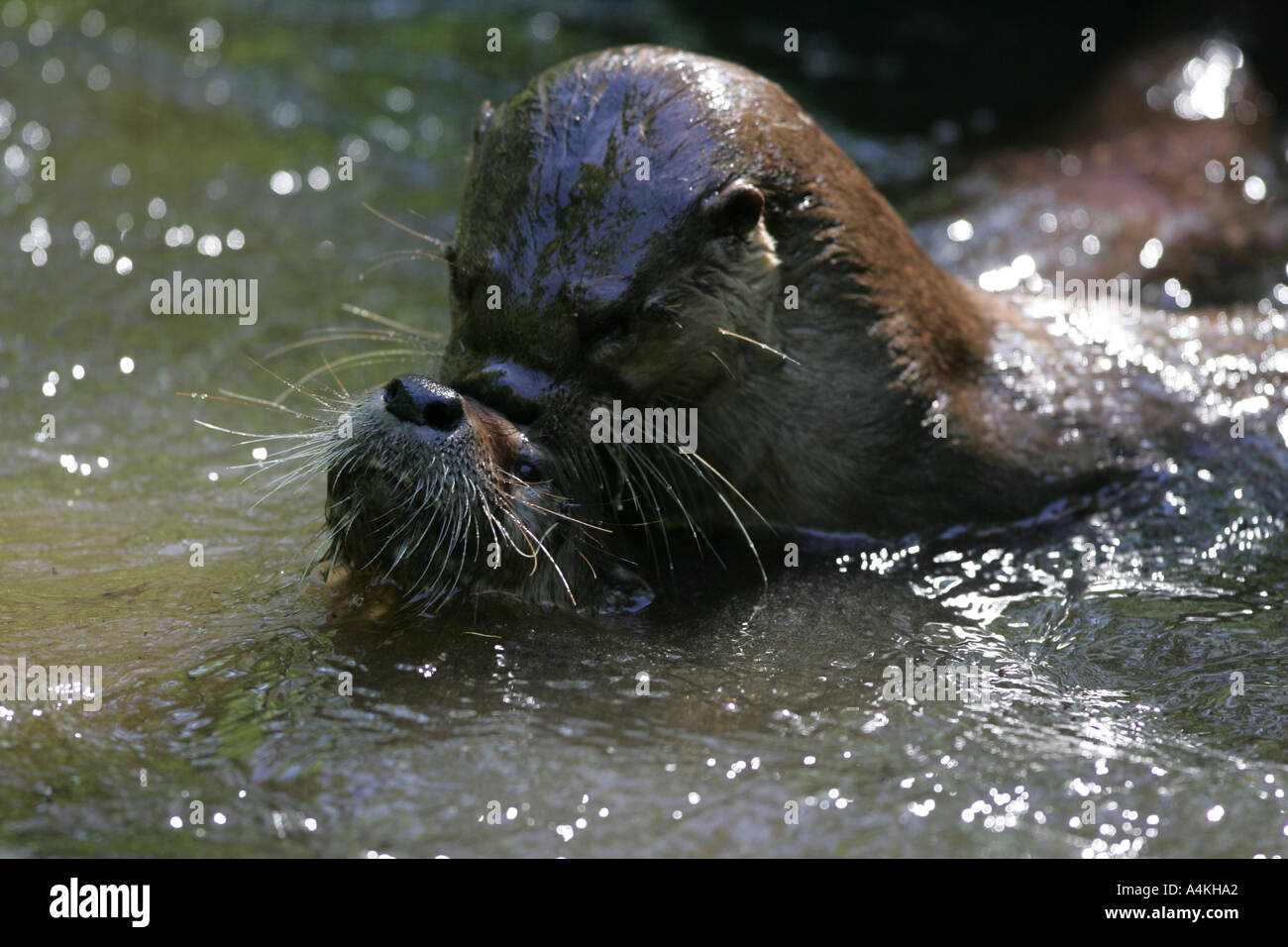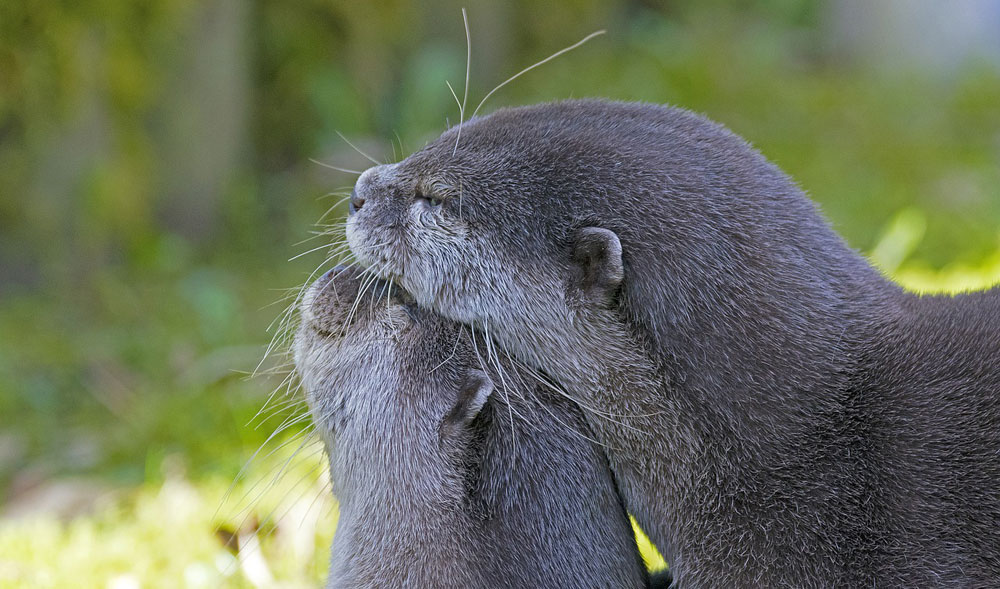Let me tell you something truly mind-blowing about otters that'll make you go "whoa." These little sea creatures have gained quite the reputation for being the ultimate romantics of the ocean world. But is it really true that otters mate for life? That's the million-dollar question we're diving into today, and trust me, the answers might surprise you more than you think.
When we talk about otters mating for life, we're not just throwing around cute animal facts here. This topic dives deep into the heart of animal behavior and relationships that can teach us humans a thing or two about commitment. So buckle up, because we're about to embark on a journey through the aquatic world of otters and their love lives that's as fascinating as it gets.
Before we dive too deep, let's set the stage. Otters are more than just adorable ball of fluff you see floating around in aquariums. They're intelligent, social, and surprisingly complex creatures. And when it comes to their mating habits, there's so much more to the story than just "they mate for life." Stick around, because this tale of otter romance is about to get real interesting, my friend.
Understanding the Basics of Otter Mating Habits
What Does "Mating for Life" Really Mean?
First things first, let's break down what we mean when we say "mating for life." In the animal kingdom, this phrase gets tossed around a lot, but it doesn't always mean what you think. For otters, "mating for life" isn't as straightforward as two otters getting hitched and living happily ever after. Instead, it's a complex mix of biology, environment, and social behavior that we're about to unpack.
Research from National Geographic shows that while some otter species do form long-term bonds, it's not as universal as you might think. The concept of "mating for life" varies greatly depending on the species, habitat, and even individual personalities. Fascinating, right?
Breaking Down the Different Otter Species
Not all otters are created equal when it comes to their mating habits. The sea otter, for instance, has a reputation for being more monogamous than its river otter cousins. But here's the kicker – even within the same species, behaviors can differ wildly. Some otters form long-term partnerships, while others play the field more freely.
Let's take a look at some key differences:
- Sea otters are more likely to form lasting bonds.
- River otters tend to be more promiscuous and less committed.
- Asian small-clawed otters often mate for life, making them the ultimate romance champions of the otter world.
The Science Behind Otter Relationships
Why Do Some Otters Mate for Life?
Now, here's where things get really interesting. Why do some otters choose to stick with one partner for life while others don't? It all comes down to survival strategies. In environments where resources are scarce, forming a strong bond with a single partner can increase the chances of successful reproduction and survival of offspring.
According to a study published in ScienceDirect, otters that mate for life often benefit from shared responsibilities in raising their pups. This teamwork approach can lead to healthier, stronger offspring that have a better chance at survival in the wild.
How Do Otters Choose Their Mates?
Choosing a mate is no small feat in the otter world. It's not just about finding someone cute to cuddle with – it's about finding a partner that can help ensure the survival of their lineage. Otters use a combination of scent, behavior, and even play to decide who they want to spend their life with.
Here are some fascinating facts about otter mate selection:
- Male otters often use play-fighting as a way to impress potential mates.
- Females are picky and will only choose a mate that proves they can protect and provide for their pups.
- Scent plays a huge role – otters have super-sensitive noses that can detect chemical signals from potential partners.
The Emotional Side of Otter Relationships
Do Otters Actually "Love" Each Other?
This is where things get philosophical. Can we really say that otters experience love in the same way humans do? While we can't exactly ask them, the evidence suggests that otters do form deep emotional bonds with their partners. Observations of otter couples in the wild show behaviors that suggest more than just biological necessity.
For example:
- Some otter pairs have been seen holding hands while they sleep to prevent drifting apart.
- Others engage in playful activities together, suggesting a level of companionship beyond mere reproduction.
- In some cases, otters have been observed grieving the loss of a partner, indicating a strong emotional connection.
Challenges Faced by Otter Couples
Threats to Long-Term Otter Relationships
Even the strongest otter relationships face challenges in the wild. Environmental factors, human interference, and competition for resources can all put a strain on otter partnerships. Habitat destruction, pollution, and climate change are just a few of the threats that can disrupt these delicate bonds.
According to the World Wildlife Fund, conservation efforts are crucial in protecting otter populations and ensuring that these amazing creatures can continue to form lasting relationships. Without a safe and stable environment, the future of otter romance is uncertain.
Myth vs. Reality: Do Otters Really Mate for Life?
Separating Fact from Fiction
So, do otters really mate for life? The answer, as you might have guessed, is a bit complicated. While some otter species do form long-term bonds, it's not a universal truth for all otters. The reality is that otter mating habits are as diverse as the species themselves.
Here's a quick breakdown:
- Sea otters and Asian small-clawed otters are more likely to mate for life.
- River otters are more promiscuous and less likely to form lasting partnerships.
- Environmental factors play a huge role in determining whether otters will mate for life.
Why Does It Matter if Otters Mate for Life?
The Broader Implications of Otter Relationships
Understanding otter mating habits isn't just about satisfying our curiosity about these adorable creatures. It also has important implications for conservation and our understanding of animal behavior as a whole. By studying otter relationships, we can gain insights into how animals adapt to changing environments and the importance of social bonds in survival.
As Dr. Jane Goodall once said, "What you do makes a difference, and you have to decide what kind of difference you want to make." When it comes to otters, the choices we make about conservation can have a huge impact on their ability to form and maintain relationships that are crucial for their survival.
How Can We Help Protect Otter Relationships?
Conservation Efforts to Support Otter Love
If you're as invested in otter romance as I am, you're probably wondering what you can do to help. The good news is that there are plenty of ways to support otter conservation efforts and ensure that these amazing creatures can continue to thrive in the wild.
Here are some ideas:
- Support organizations like the World Wildlife Fund and the Otter Trust that focus on otter conservation.
- Reduce your use of single-use plastics to help protect otter habitats from pollution.
- Educate others about the importance of otter conservation and the role these creatures play in maintaining healthy ecosystems.
Conclusion: The Future of Otter Romance
So there you have it – the fascinating truth about otters mating for life. While not all otters choose to stick with one partner forever, many species do form lasting bonds that are as impressive as they are inspiring. As we continue to learn more about these amazing creatures, it's clear that their relationships are just as complex and beautiful as our own.
Here's a quick recap of what we've learned:
- Not all otter species mate for life, but some do form long-term bonds.
- Environmental factors play a huge role in determining otter mating habits.
- Conservation efforts are crucial in protecting otter relationships and ensuring their survival in the wild.
Now it's your turn to take action. Whether it's supporting conservation efforts, reducing your environmental impact, or simply spreading the word about the amazing world of otter romance, every little bit helps. So go out there and make a difference – the otters will thank you for it!
Table of Contents
- Understanding the Basics of Otter Mating Habits
- What Does "Mating for Life" Really Mean?
- Breaking Down the Different Otter Species
- The Science Behind Otter Relationships
- Why Do Some Otters Mate for Life?
- How Do Otters Choose Their Mates?
- The Emotional Side of Otter Relationships
- Do Otters Actually "Love" Each Other?
- Challenges Faced by Otter Couples
- Threats to Long-Term Otter Relationships


